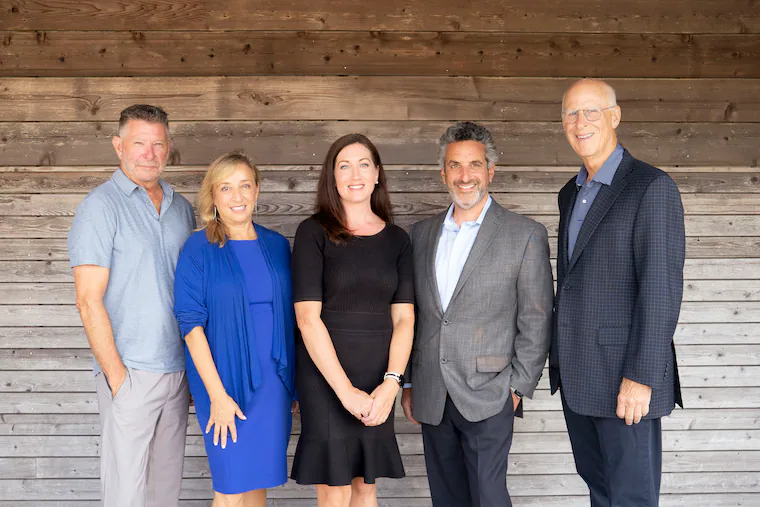Copyright The Boston Globe

Newly elected Sen. Bernie Moreno told the crowd that he’d received a phone call from a top executive at the private equity firm promising that the facility would remain open until the end of the year, giving it more time to find a new owner. The mill’s rescue was not assured, Moreno and the other politicians cautioned. But it was hard to find anyone in the crowd not buoyed by what Moreno called “a day of hope.” “It was amazing,” said Jeff Allen, the president of the union local who also addressed the crowd in April. “I’m sitting there with the governor, two sitting U.S. senators, the district congressman, all the state officials -- my votes didn’t put any of them in office. Historically, this union supported Democrats. And yet here are all these Republicans supporting us.” Donald Trump’s promise to revive manufacturing in the United States had appealed to working-class voters around the country last November, including many of Allen’s co-workers. Now, here was Moreno, forcefully pounding the table for union jobs. It seemed that Moreno had bent a private equity titan to his will, threatening in a blistering letter to conduct a federal investigation into the portfolio of businesses held by the firm, H.I.G. Capital. When Moreno had announced that the firm’s leaders had given the workers an additional six months, he added that he would be helping to find a buyer. The senator gave Allen his cellphone number and said an aide would be moving to Chillicothe to provide boots-on-the-ground help. For more than a century, the paper mill was owned by the Mead family, the maker of notebooks for generations of schoolchildren. The 1990s marked the beginning of the mill’s steady decline. With the dawn of the digital age, there was less need for paper. The mill underwent a steady churn of owners. Three of its past four owners have been private equity firms, including H.I.G. Capital, which manages a $70 billion portfolio. Three years ago, Miami-based H.I.G. bought Pixelle Specialty Solutions, which operated the mill. In the paper industry, private equity has often followed a familiar playbook: buy a distressed asset on the cheap and load it with debt, some of which is used to pay the private equity firm. Then, in a few years, the private equity firm sells the company or declares bankruptcy. As the mill changed hands over the years, it was rarely good for the rank and file. Interviews with more than two dozen current and former employees describe the past 25 years as a period of underinvestment, poor management and declining morale. Moreno was elected in 2024 after an expensive, sharp-elbowed campaign in which he leaned heavily on support from Trump. Moreno narrowly beat out Sherrod Brown, a liberal Democrat and stalwart union supporter, with 50.2% of the vote. Moreno had held the office for only four months when H.I.G. Capital announced in April that it would be shuttering the paper mill. The announcement blindsided not only the workers, but was a shock to the state’s political leaders, who in recent years have aggressively sought to stanch the bleeding of blue-collar union jobs. Some voiced their anger. Others pledged support for the workers. Moreno jumped in with a fire-breathing letter to H.I.G. Capital’s top executives that hit on a familiar populist theme: Regular folks are losing out -- in this case, to rich guys in Miami. “I’m here to inform you that such lecherous, self-serving, and destructive behavior must end now,” Moreno wrote. He demanded to know the financial terms of the acquisition, the yearly balance sheets for the mill and how much top executives profited. He also threatened to pursue Department of Justice and Department of Treasury investigations of companies owned by H.I.G. Capital. But on the morning before he spoke to the crowd in April, Moreno took a call from Brian Schwartz, a co-president of H.I.G. Capital. Schwartz, sounding apologetic, agreed to keep the plant open until the end of the year while helping to find a buyer, according to Moreno. (H.I.G. Capital never announced the six-month extension. Schwartz did not respond to messages seeking comment.) The senator was determined to find a new owner. He helped stir up a steady stream of potential buyers that were led around the paper mill. But the mill would have needed hundreds of millions of dollars in investment in new or reconfigured machines in order to pivot from its primary product: carbonless paper that has largely been made obsolete with the digitization of finance and medical forms, said a former plant manager who spoke on the condition of anonymity because he still works in the paper industry. Faced with this reality, H.I.G. couldn’t even give the mill away. Moreno returned to Chillicothe on the first Saturday in June to deliver grim news to the union’s leadership: H.I.G. Capital would be closing the mill Aug. 10, not at the end of the year, as the private equity firm had initially promised him. Moreno said he had come to understand H.I.G. Capital’s plight. The mill had been hemorrhaging customers (and employees) since it announced the closing, and it was costing the firm millions to keep it open even for a few more months. “I’m a business guy,” Moreno said. “I understood that they were on a path that couldn’t be reversed. You realize it’s a monumental amount of money they would have to invest to turn it around.” By early September, all that remained at the mill was a skeleton crew that did little more than keep the lights on. Hundreds of workers had received their last paychecks and had started calculating how to stretch out their severance checks while they looked for what’s next. It wasn’t the “white knight solution” that Moreno had hoped for. But it was “still a much better solution than doing what my opponent probably would have done -- gone down there, organized a protest and gone home,” Moreno said, referring to Brown. But Brown said that a broad coalition should have been involved, including union, city and county leaders, to exert pressure on H.I.G. Capital. He said Moreno showed his allegiance when he voted for Trump’s tax bill, which has tax benefits that will be a boon for private equity executives, like the ones at H.I.G. Capital. “You can make speeches -- we all do,” said Brown, who is running for Ohio’s other Senate seat next year. “You can write nasty letters. You can call them out on the Senate floor. But if you’re not willing to vote and hold their feet to the fire on tax issues, they don’t really care.” Last month, Moreno arrived in town to make a grand announcement: The mill had been bought by the U.S. Paper Mill Co., a subsidiary of U.S. Medical Glove Co. The workers were eager to hear more about the new venture, which Moreno told the crowd was just a start. In time, the company might employ 1,500 people and ensure that hospital gloves around the country, the boxes they are shipped in and the machines that make them in other countries would be manufactured in Chillicothe. He praised Schwartz, the H.I.G. Capital executive, who he said had agreed to contribute $5.5 million to a fund that would be allotted to the laid-off workers -- though almost all of it won’t be distributed for five years. It was not disclosed how much U.S. Medical Glove paid for the mill facility. But Moreno declined to answer two fundamental questions: How many jobs would there be to start and what would they pay? Neither could John Todoroki, the owner of U.S. Medical Glove, who did not address the crowd. Several former workers who attended the ceremony said they were hopeful that the new jobs would be a good thing for Chillicothe even if they had little idea what the jobs were or how much they would pay. Unlike at the old paper mill, these new jobs would not be unionized. As of Thursday, the new company has 70 employees. “It’s anger and it’s hurt,” said Allen, now the former union president, who was laid off at the end of August. “That was my life. I went there when I just turned 19. And here I am, 56. I’m angry at the whole process and I’m hurt for all those employees.” Allen said Moreno had called to inform him about the sale. Then the senator’s aide extended an invitation to speak at the ceremony celebrating the new ownership. Allen never responded.



